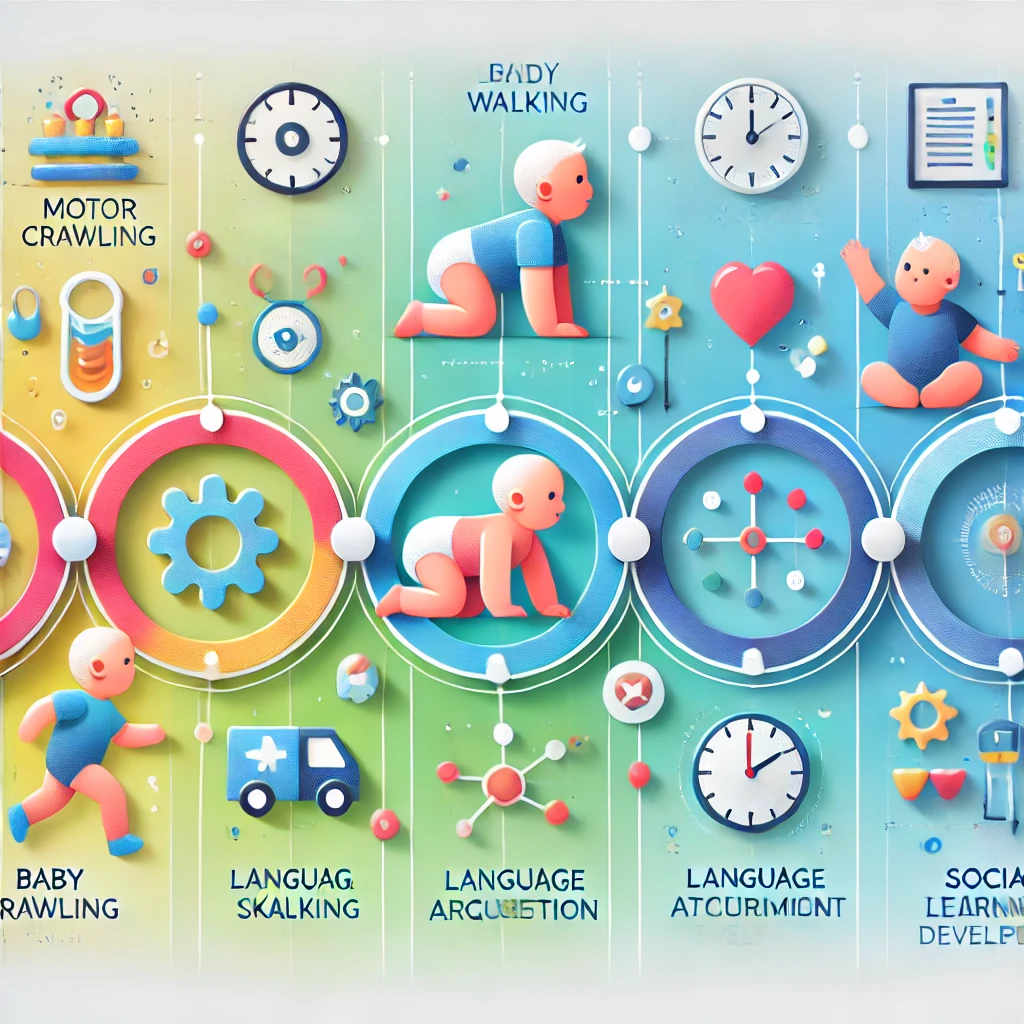
Understanding Your Child’s Developmental Milestones: A Parent’s Guide
Introduction: The Journey of Child Development
Parenting is a fascinating, often challenging, journey, and understanding your child’s developmental milestones is one of the best ways to guide them through this exciting phase. Whether you’re navigating the toddler years or the teen phase, having knowledge of developmental stages helps you support your child’s growth with the right tools, advice, and patience. So, how can you truly understand your child’s growth and development? Let’s explore it all!
Why Understanding Developmental Milestones Is Crucial for Parents
Each child is unique, and their developmental path can vary. However, understanding general milestones helps you spot potential delays, manage expectations, and celebrate achievements. From the first step to their first solo bike ride, these milestones are important markers of growth.
The Early Years: Baby to Toddler Development
What Are the Key Milestones in the Early Years?
During the early years, development focuses on basic skills like crawling, walking, and language acquisition. A baby will typically start rolling over, sitting up, and then progress to standing and walking. These milestones happen quickly, so it’s important to give your child enough space to explore and learn.
Supporting Development with the Right Educational Toys
Choosing the right educational toys is essential at this stage. Toys that encourage fine and gross motor skills, such as stacking blocks or shape sorters, help babies and toddlers develop coordination and problem-solving abilities. Remember, not all toys need to be expensive—sometimes, a simple ball or homemade object can work wonders!
How to Foster Creativity in Your Child: A Parent’s Role
As your child moves into the preschool years, creativity starts to blossom. You might see them drawing, building, or even imagining elaborate games. But how do you foster this creativity?
How to Encourage Creativity in Children
The key to encouraging creativity is to provide a safe environment where your child feels comfortable expressing themselves. Encourage open-ended play, whether it’s through arts and crafts, imaginative games, or building with blocks. Don’t forget to limit structured play to allow space for free expression.
The School Years: Navigating Academic Development
How to Help Your Child with Homework: Best Apps and Tools
As children begin school, academic milestones become a focus. But homework can be challenging for both children and parents. Luckily, there are some best apps for helping kids with homework that offer interactive ways to learn, from math help to spelling practice. Some popular apps include Khan Academy Kids and ABCmouse, which cater to different subjects and age groups.
Creating a Positive Learning Environment at Home
One of the best educational tools for kids is a positive and supportive environment at home. Set up a dedicated study space, limit distractions, and encourage a routine that balances schoolwork with relaxation. A positive attitude towards learning is contagious and will help your child feel more motivated.
Teens: The Challenges of Adolescence and Effective Communication
Top Parenting Challenges and How to Overcome Them
Adolescence is a time of emotional and physical change, and it can be difficult for both teens and parents. Understanding these challenges is key. It’s common for teens to test boundaries or become more independent, but this is all part of growing up. The best way to approach this stage is with patience, understanding, and a willingness to listen.
Effective Communication with Teenagers
Communicating with teenagers can be tricky, but it’s crucial. Instead of just lecturing, try to listen more than you speak. Encourage open dialogue, let them know their opinions matter, and avoid harsh judgment. It’s also helpful to discuss real-world topics, as this will help develop their critical thinking skills.
Balancing Work and Parenting: The Myth of the Perfect Parent
How to Maintain Work-Life Balance as a Parent
Finding a balance between work and home life is one of the greatest challenges many parents face. The key to a successful work-life balance isn’t perfection, but rather managing expectations. Set boundaries between work and home life, and don’t forget to take care of yourself. After all, a well-rested and happy parent is the best role model for their child.
Healthy Parenting Practices: How to Raise Confident Children
Practical Advice for Raising Confident Children
Confidence doesn’t come naturally for every child, and it’s up to parents to foster this quality. Start by encouraging your child’s efforts, not just the results. Praise them for trying new things, and avoid comparing them to others. Additionally, give them responsibilities that help them feel capable and competent.
Managing Screen Time: How Much is Too Much?
Top Tips for Managing Screen Time
In today’s digital world, managing screen time is essential for healthy development. While some screen time is inevitable, too much can have a negative impact on your child’s development. Try setting screen time limits, encouraging offline activities, and being a role model by managing your own screen use.
Affordable Ways to Create Fun Learning Activities
You don’t need a lot of money to make learning fun for your child. Simple activities like scavenger hunts, DIY crafts, or science experiments can be just as enriching as expensive educational programs. Keep it creative, and your child will have a blast while learning!